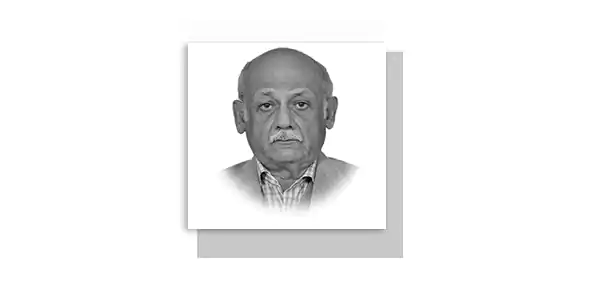The Muslim world including Pakistan has long been saddled with the curse of dynastic and autocratic politics. The world has witnessed a dramatic political and social change during the last half a century. The mushroom growth of social media and the relentless bombardment of TV news, talk shows about all developing events incidents and the regular analysis of all important news has raised the understanding of the general public to a very high level. Even the illiterate and the semi-literate members of society are aware of their rights and know exactly what sort of leadership they want and what policies are needed to be adopted for the greater good of the country and the common man. The common man today cannot be duped by slick talking politicians as he will now look at the past record and recent performance of any candidate while exercising his right to vote in the elections.
The great game of dynastic politics continues in Pakistan or rather the game of musical chairs goes on. Ironically it is being played once again only the players have changed and nothing is different from the past. The return of the three times Prime Minister Nawaz Sharif after four years of self-imposed exile appears to be another sordid chapter of the great game of political chairs we have seen a few times in the past.
Nawaz Sharif was very magnanimously allowed by the Courts to travel abroad for medical treatment after giving a solemn pledge that he will return to Pakistan and complete his prison term.
The former PM has now returned four years later has been granted bail by the courts just before landing in Islamabad Nawaz Sharif’s dramatic entry in the volatile political arena of Pakistan has ignited a fierce debate about some deal with the powers that be to install him as Prime Minister and hand over the political leadership of the country to the PMLN once again.
The speech delivered by Nawaz Sharif on 21st October in Lahore was full of grievances and his long suffering during his detention days and in exile but he did not seem defiant with talk of civilian supremacy or his favorite slogan of “Vote ko Izzat do” giving more credence to the theory that he wants to be in the good books of his supporters and will not risk any clash with any powerful institution of the country.
Democracy in Pakistan has suffered repeatedly by the onslaught of non-democratic forces and the very short sighted and selfish behavior of most of our political leaders who have looked towards the establishment to gain power and then to remain in power with the help of powerful agencies and not on the basis of their own performance and popularity in the general public.
Party heads give preference to their own kith and kin and prevent the development of leadership on merit within their own parties and this dynastic approach of our leaders is against the very basics of democracy. Countries like Nepal and Sri Lanka have also suffered from this curse when dynasties have dominated the politics of these countries. India is one example in South Asia that his discarded this tradition and elected leaders like Man Mohan Singh, I.K. Gujral, Atal Bihari Vajpaee and Narender Modi as chief executives of the country.
Unfortunately Pakistan of today lacks a political party with roots in all the provinces. The Bhutto Family rules the roost in Sindh and the Sharifs have the Punjab in the grip of dynastic rule. KPK and Baluchistan are so far free from the curse of dynastic rule. Families have every right to capture political power but through the process of a fair and free elections and no help from powerful state agencies.
The people of interior Sindh have suffered the rule of a dynasty for a very long time. It is ironic and unfortunate — considering the solid support that PPP enjoys in rural Sindh which gives it continuity in enjoying political power — that the party has yet to seriously focus on the development of this constituency. The shameful neglect of Karachi is another ugly manifestation of incompetent governance. In this the MQM may be equally responsible despite having until recently a substantial vote bank in the city.For the coming elections we can only hope and pray that the establishment remains completely neutral. The PTI should be given a fair chance to participate because in spite of their previous poor governance and their recent political blunders they still command support in the electorate.
—The writer is Professor of History, based in Islamabad.
Email: tariq.aqil@headstart.edu.pk










